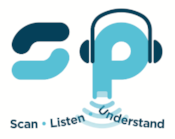Join us at the British Dyslexia Association International Conference
Over the past 15 years I’ve spent most of my working career in the dyslexia field. Spending 5 ½ years working for the British Dyslexia Association was a deep honour and a real growth in my ability to understand my dyslexia.
In less than a week’s time the British Dyslexia Associations 11th International Conference takes place 12th – 14th April in Telford the home of Scanning Pens. This is a unique opportunity for teachers and practitioners to get involved and to really understand the academic and current research in understanding and supporting of dyslexia.
This year the International Conference has a unique opportunity on Saturday 14th April there is an Expo opportunity for parents to see some world-class speakers including Dr Lindsay Peer, Dr Tilly Mortimer and Dr Helen Curtis. The speakers will give you a real insight in the impact of dyslexia and ways that you as a parent can support students. There is also a unique talk in understanding the legal position from the school to tribunals by leading solicitor Mr Andrew Barraclough. This event will also include a panel of experts for you as parents to ask your questions. The event culminates with a unique opportunity for you to talk to and explore some of the leading companies within the education community where you can find resources, books and assistive technology to support your children or even your dyslexia.
As a severely dyslexic adult by understanding my dyslexia was the way that I was able to change my life, I was very insecure, depressed and stressed throughout much of my educational life but once I learnt to understand my difficulties I was able to grow in my strengths. I look forward to seeing you at the BDA’s International Conference either as a teacher or practitioner throughout the three days or on the Saturday at this unique parent’s event.
Look forward to seeing you
Arran Smith Scanning Pens Dyslexia Adviser



